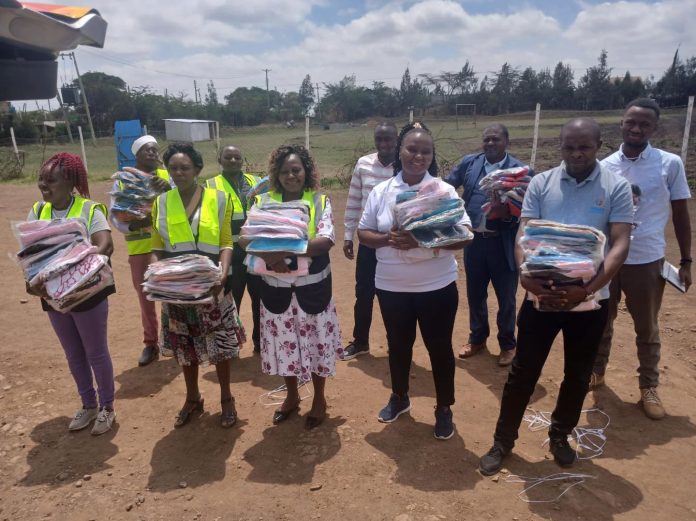Students at Ole Kasasi Primary School in Ongata Rongai recently received a donation of undergarments through a community-led relief initiative, offering much-needed support to learners especially girls facing challenges related to menstrual health and personal hygiene.
The donation, coordinated by Fly Driving School, was welcomed by teachers, parents, and local leaders as a timely intervention that addresses a critical but often overlooked need in public primary schools.
For many pupils, access to basic hygiene essentials such as undergarments remains a daily struggle, with some forced to attend school without them due to economic hardship.
“This is more than just clothing, it’s about dignity, confidence, and inclusion,” said one teacher at Ole Kasasi. “When girls feel secure and respected, they participate more actively in class and are less likely to miss school during their menstrual periods.”
Ongata Rongai MCA Titus Matheka praised the initiative, highlighting the importance of community partnerships in bridging welfare gaps in education. “A big thank you to fly driving school for their generous support of undergarments to the students of Ole Kasasi Primary School. Your kindness is truly making a positive difference in the lives of our young learners,” Matheka said.
ALSO READ:
KeNHA extends closure of Bomas–Kiserian Road for culvert installation
Parents echoed the sentiment, noting that such support helps reduce stigma and absenteeism among girls, who often face embarrassment or punishment when unable to meet hygiene expectations. “Some of us are struggling to put food on the table. Buying extra items like undergarments or sanitary pads is not always possible,” said one parent.
The donation comes amid conversations about menstrual equity and the need for targeted support in schools across Kajiado County. While the government provides capitation for learning materials, many schools lack dedicated funding for hygiene products, leaving vulnerable learners exposed.
Education advocates have called for more structured interventions, including the provision of sanitary kits, menstrual health education, and psychosocial support for girls in both urban and rural settings. “We need to normalize conversations around menstrual health and ensure that no child is left behind because of something so basic,” said a local youth organizer.
This is expected to inspire similar efforts in neighboring schools, with stakeholders urging more private sector and civil society involvement in learner welfare.
By Masaki Enock




